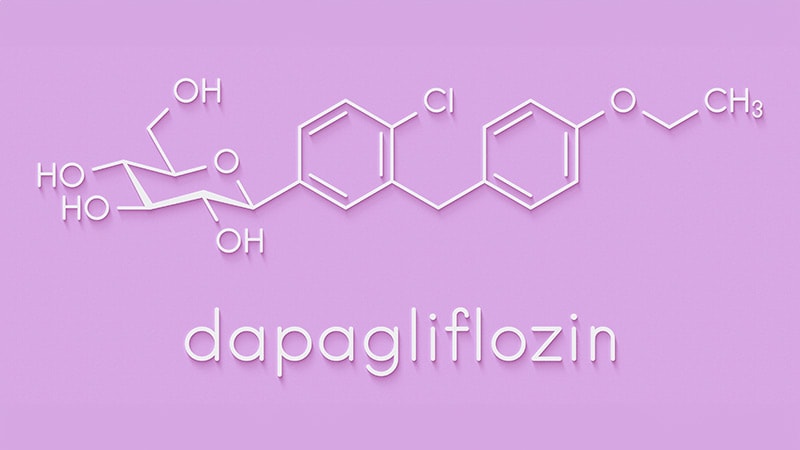TOPLINE:
Combining dapagliflozin with calorie restriction achieved a greater type 2 diabetes (T2D) remission rate and significant changes in body fat and metabolic risk factors than calorie restriction alone.
METHODOLOGY:
- Researchers conducted a multicenter, double blind, randomized, placebo-controlled trial at 16 centers in mainland China from June 2020 through January 2023.
- A total of 328 patients with T2D for less than 6 years were randomly assigned to either calorie restriction alone or calorie restriction with 10 mg dapagliflozin daily for 12 months; the mean age was 46.7 years, 66% were men, the mean body mass index (BMI) was 28.2, the mean A1c was 7.3%, and 45% were treated with metformin at baseline.
- The calorie-restricted diet had an energy deficit of 500~750 kcal per day, with fat 15%, based on an individual’s actual daily calorie intake at baseline; all participants received dietary counseling, kept a food log, and were encouraged to be physically active (150 minutes of brisk walking every week or > 10,000 steps per day).
- The primary outcome was diabetes remission, defined as glycated hemoglobin
TAKEAWAY:
- At 12 months, 44% of participants in the calorie restriction plus dapagliflozin group were in remission compared with 28% in the calorie-restriction-only group (risk ratio, 1.56).
- At 12 months, there also was a significantly greater reduction in body weight (difference, 1.3 kg) and homeostatic model assessment for insulin resistance (difference, −0.8) in the dapagliflozin group.
- Metabolic risk factors were also significantly improved in the dapagliflozin group, including body fat mass, systolic blood pressure, fasting plasma glucose, A1c, high density lipoprotein cholesterol, and triglycerides.
- No significant between-group differences in adverse events were detected.
IN PRACTICE:
“Our results support the strategy of dapagliflozin plus regular calorie restriction…as an effective and sustainable approach for remission of diabetes in patients with early type 2 diabetes,” the authors wrote.
In a related editorial, David Hope, MD, and Jonathan Valabhji, MD, of Imperial College, United Kingdom, noted, “The optimal balance of lifestyle components needs to be considered; achieving remission through less intense calorie restriction may prove more inclusive at the population level and may also serve to reduce interventional unit cost.”
SOURCE:
The study was led by Xiaoying Li, MD, of Fudan University, Shanghai, China, and published online in The BMJ.
LIMITATIONS:
The findings cannot be generalized to patients with T2D for more than 6 years or to other races or ethnic groups. Body composition measurement by dual energy x-ray absorptiometry was not done in all centers, and total energy expenditure was not assessed.
DISCLOSURES:
The study was funded by grants from the National Nature Science Foundation of China and National Nature Science Foundation of China for Distinguished Young Scholars, and partially by a grant from AstraZeneca. The authors declared no financial relationships with any organizations that might have had an interest in the submitted work in the previous 3 years and no other relationships or activities that could appear to have influenced the submitted work.
Hope and Valabhji had no disqualifying financial ties to commercial companies.
Source link : https://www.medscape.com/viewarticle/dapagliflozin-and-calorie-restriction-achieves-t2d-remission-2025a10001s0?src=rss
Author :
Publish date : 2025-01-24 08:55:31
Copyright for syndicated content belongs to the linked Source.
